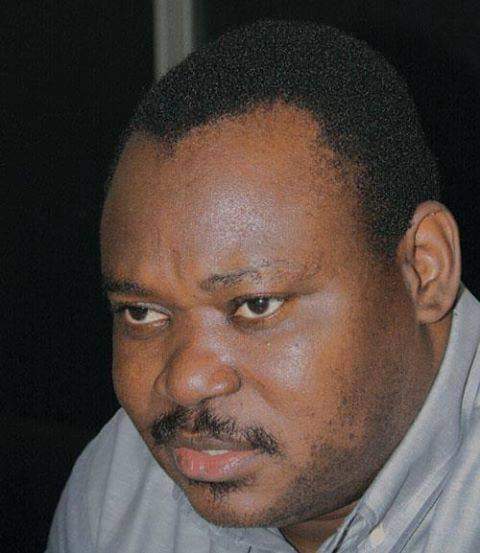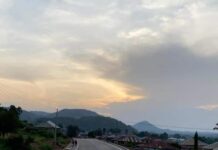Living with insecurity is the only security By Dr. Jimoh Ibrahim CFR
POLITICS DIGEST- The human condition is precarious even in the most hospitable of circumstances because we are all unavoidably exposed − at least to some degree − to others who are at best careless and unreliable and at worst mean and malevolent. It is precise because human nature is flawed that perfect security cannot exist in any human society.
Moreover, like Hobbes’ state of nature,’ every human being is a potential threat because the struggle for survival in a world of limited resources is a ‘war of all against all,’ a flourishing society relatively safe from would-be attackers. However, it may not also be the case that one can never be completely safe. In any event, the imperativeness of the need for security policies usually involves creating and maintaining police and military forces prepared and equipped to carry out that essential job for the public good.
Thomas Hobbes posited that all humans are relatively equal in their ability to harm and injure one another. One might be a little stronger and a little quicker, but even the most muscular man must sleep, and even the fastest woman must stop eating and drinking. This makes all humans vulnerable to attack by another human. In a world without a government to enforce order – a condition that Hobbes calls the state of nature – every human must be vigilant against threats to survival. A world without Government, he claims, forces humanity into a constant state of war because there is no way to trust in the excellent or peaceful intentions of others.
We must always be on our guard lest we be attacked. This condition – in which no ruler or judge can resolve disputes and establish security – is anarchy. In an anarchic world, Hobbes argues that our lives must revolve around survival, leaving no time for agriculture, the arts, or sciences conditions of anarchy; Hobbes says, ‘the life of man [is] solitary, poor, nasty, brutish, and short. The Thomas Hobbes, Leviathan phenomenon a thesis shows the danger of insecurity answer. People can enjoy living in a society with others while limiting the risks.
At least in one example, the Nigeria Boko Haram insurgency underscores the Hobbesian thesis of man’s aggressiveness in the state of nature that requires the leviathan’s intervention. The Nigerian Government’s failure to provide public goods led to the emergence of the Boko Haram insurgency. The citizens contest their rights to life (now in danger), withdrawing their loyalty and support from the Government and the Armed forces. A praxis explains the power shift from the Nigerian Government to the identified local group (Boko Haram). The shift accompanies ongoing violence between soldiers and the insurgents resulting in mass civilian casualties, genocide, systemic rape, and unquantifiable property destruction fostering human insecurity.
Read Also:
The above narrative makes the statement relevant that knowing how to live with insecurity is the only security. For example, one can never be completely safe even with the leviathan intervention. Individuals can no longer do or act precisely as they please, but only insofar as the state permits. The state thus removes individuals from the predicament of uncertainty. Unfortunately, the problem of uncertainty and corresponding security dilemmas persist within the international realm, which continues to resemble Hobbes’ state of nature
insecurity is pervasive in the international realm. For instance, international society is anarchic, and there is no single authority to remit uncertainty.
Unfortunately, we move from the dynamics of abuse of power as we saw in Darfur. The International Criminal Court (ICC) charged Sudanese President Omar al-Bashir with war crimes (2009); the violence has also forced some 2.5 million people − mostly farmers and villagers from non-Arab groups – to flee their homes. So was the American-led Iraq invasion in 2003 to the insecurity creation of intervention and collision of the value of international, national, and human security paradigms. Again, is the intervention in Iraq (1990), Bosnia (1995), and Afghanistan (2001), which were intended to preserve the territorial status quo and restore sovereign control to legitimate governments. (In Kuwait, Sarajevo, and Kabul), intervention in Kosovo (1999) was intended to protect the Kosovar (Albanian) minority even at the risk of partitioning the (rump) federal Yugoslav state (Serbia-Montenegro). All are empirical evidence of insecurity globally.
Again, the challenges of the COVID 19 pandemic, like every other widespread disease, created concern for security arrangement and securitisation.
In developing countries of weak states, the leviathan has failed in its responsibility to protect the citizen. Moreover, as explained above, with the ongoing killing by Boko Haram and collaboration of the insurgent with the new formation of the Islamic State West Africa Province (ISWAP) and its expanding activities in the West Africa Sub-region. (Where Boko Haram killed the President of Chad recently), how to live with insecurity is the only security known, at least in the West Africa sub-region. Unfortunately, there is no solution for most institutions set up to address uncertainty globally, including the UN are epiphenomenon as the neo-realist saw them.
Author’s notes
Dear colleagues, accept my congratulations as we completed our B.Sc. International Relations at the London School of Economics LSE. It is a call to duty that we must address issues that make our global village uncertain with human insecurity. I do know some of you from international organizations will be worried about the expanding activities of Boko Haram in the West Africa Sub-region. Again, is Russia in Ukraine! Global power is now selectively acting in concert or tentatively thinking in the face of collusion of the value of human, national and international security paradigms. I hope to join you soon at the international level to engage your scholarly view as I retune shortly to participate in my country’s Government and learn the other language!
Dr. Ibrahim Jimoh CFR Ph.D. obtained his first Doctorate degree from the University of Cambridge. He is (an outgoing) Candidate studying Modern War Studies at the University of Buckingham. He writes this article to celebrate his 2021/2022 B.Sc. Class in International Relations class at the London School of Economics of the University of London.
















